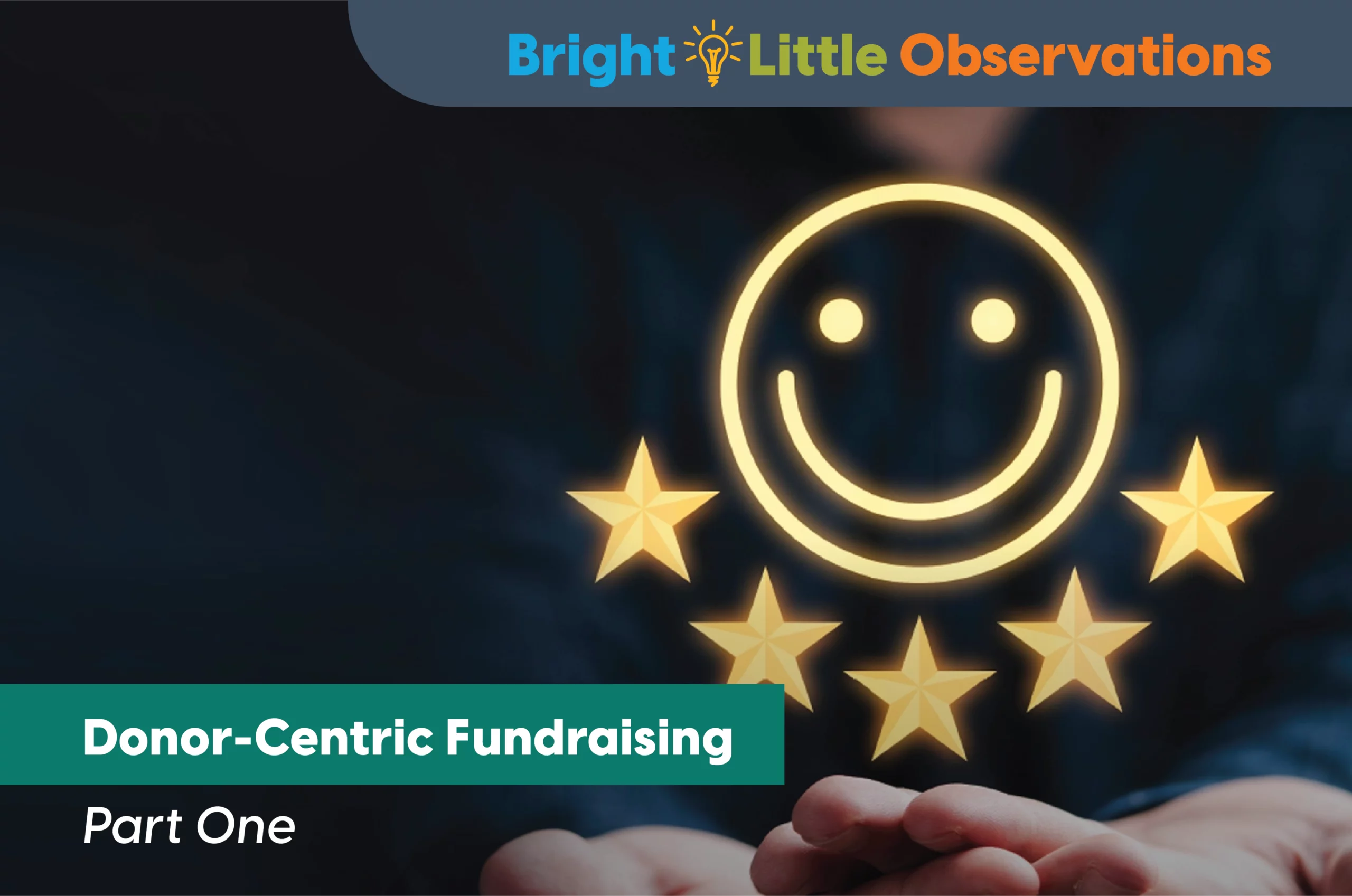


Is Your Organization “Donor-Centric”?
Why it should be … and how to make it happen.
It’s been a conference topic for years – and the subject of countless books and blogs. But perhaps the importance of donor-centric fundraising has never been greater than it is now in this post-pandemic climate, where nonprofits are seeing an alarming drop in Covid-19 motivated donors.
The Fundraising Effectiveness Project (FEP) reveals that while fundraising in the United States increased by 2.2% in the first quarter of 2022, the donor pool continued to shrink as large gains in new donors from 2020 that were lost in 2021 have now stalled again this year. The report found that the number of donors decreased by 5.6% due to reduced donor acquisition, and the donor retention rate, the percentage of donors who gave in 2021 and then gave again in 2022, unfortunately decreased by 6.2%.
A healthy base of support simply can’t be maintained without intentional and strategic stewardship with a strong focus on sustaining and broadening donor giving.
That’s where donor-centrism comes in.
“Regardless of its mission, every nonprofit depends on the partnership of many to provide the necessary resources – financial funding, goods and services, time and talent, knowledge and expertise – to achieve its goals,” says Summit Marketing Senior Communications and Creative Director, Tammy Nigus.
“Donor-centrism is the attribute that makes the difference between organizations that secure only one-off or seasonal donations and those with a solid foundation of supporters who make consistent financial contributions often and year-round. These donors remain loyal when times are tough. They’re advocates who spread awareness of your mission to their families, friends and communities. They’re partners who embrace your mission as their own and feel as responsible for your success as your staff, volunteers and board members do. They may even be part of those groups.”
What makes an organization donor-centric?
Putting donors first and focusing on their needs.
As Dale Carnegie said so well: “You’ll have more fun and success when you stop trying to get what you want and start helping other people get what they want.”
Donors are “only” human. Like all of us, they share the need to be valued, respected, appreciated, understood and part of a like-minded community. They aspire to right wrongs, end suffering and make a positive impact on those around them and the issues important to them.
If managed effectively, a donor-centric organization will have a positive impact on donor satisfaction, increasing size of gift … extending scope of partnership … inspiring donors to stay longer … and setting the foundation for legacy giving.
Let’s look at how to make that happen.
- Create a Donor-Centric Culture
A donor-centric culture is the essence of a highly effective nonprofit organization, driving not only its fundraising strategies but overall operations as well. It values each donor at all times – not just during fundraising activities – and keeps them top of mind when making decisions from recruiting volunteers to replacing outdated equipment to selecting a new executive director.
Each person directly associated with your organization – board chair, management team, janitorial or administrative staff and even program participants – should be informed and taught in order to understand the role and significant value of your donors. This empowered knowledge will allow that awareness to guide all interactions and communications with those individuals, explicitly or implicitly expressing gratitude and appreciation as they see and interact with these visitors.
Most importantly, explained the late fundraising author and mentor Simone Joyaux, a donor’s relationship with your organization deepens or frays based on how much trust you can create in three areas:
- Trust that donors play a vital and central role in your organization’s success
- Trust that your organization does worthwhile things with donor gifts
- Trust that your organization conducts its operations efficiently
Six questions to evaluate your donor-centric culture:
- Is donor appreciation a prevailing sentiment among your staff, volunteers, board members and program participants?
- How familiar is your board and leadership team with your most loyal donors and their passions and desires?
- How well do your donors understand your mission, vision, values and impact?
- Do your donors share your work and their partnership with their peers, professional contacts and civic circles?
- How effectively does your organization accept and respond to donor feedback?
- How transparent is your organization when it comes to sharing problems and challenges with donors?
Need help to create or evaluate your donor-centric culture? Summit Marketing offers training specifically tailored to your organization’s unique goals and challenges.